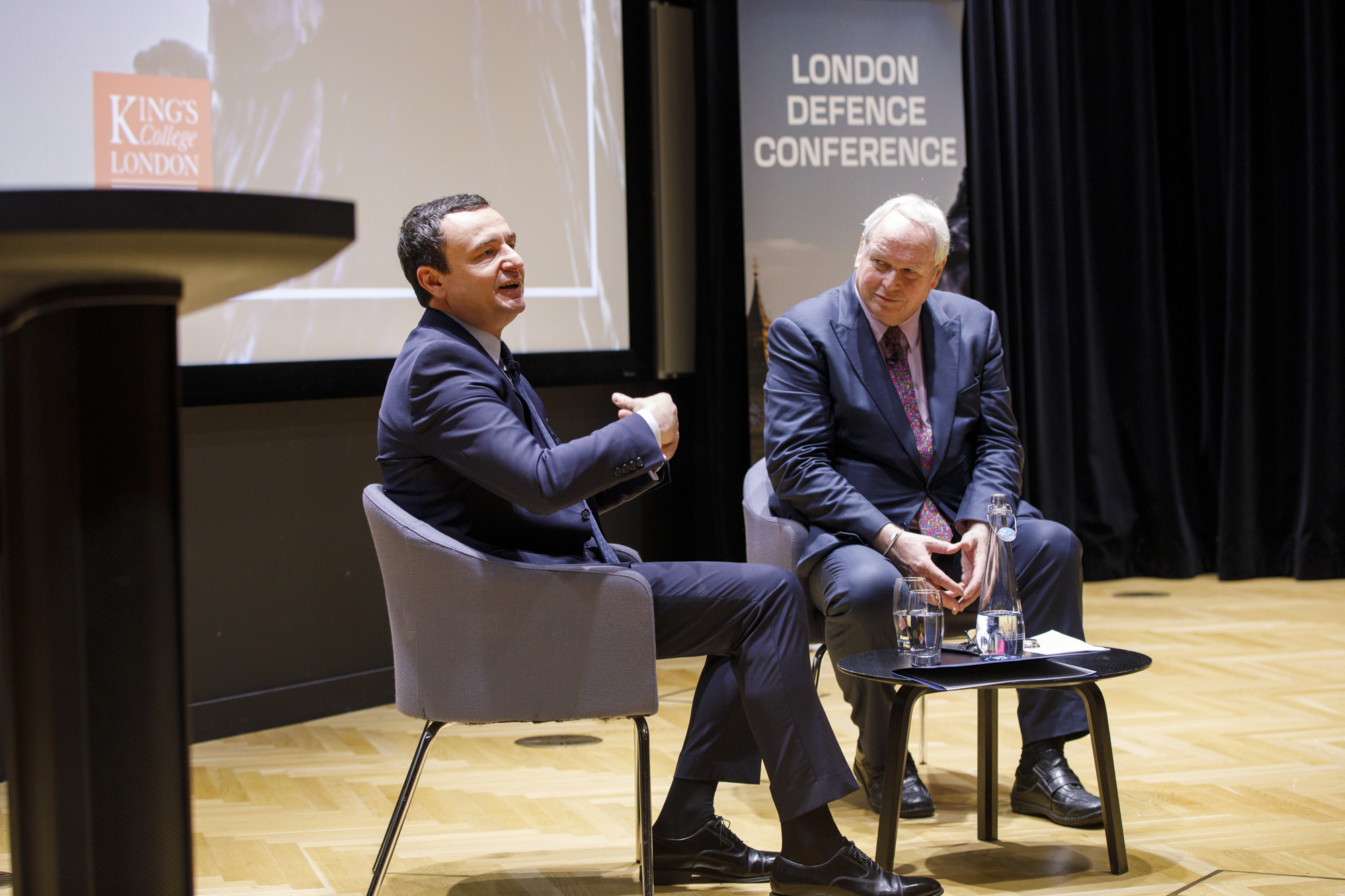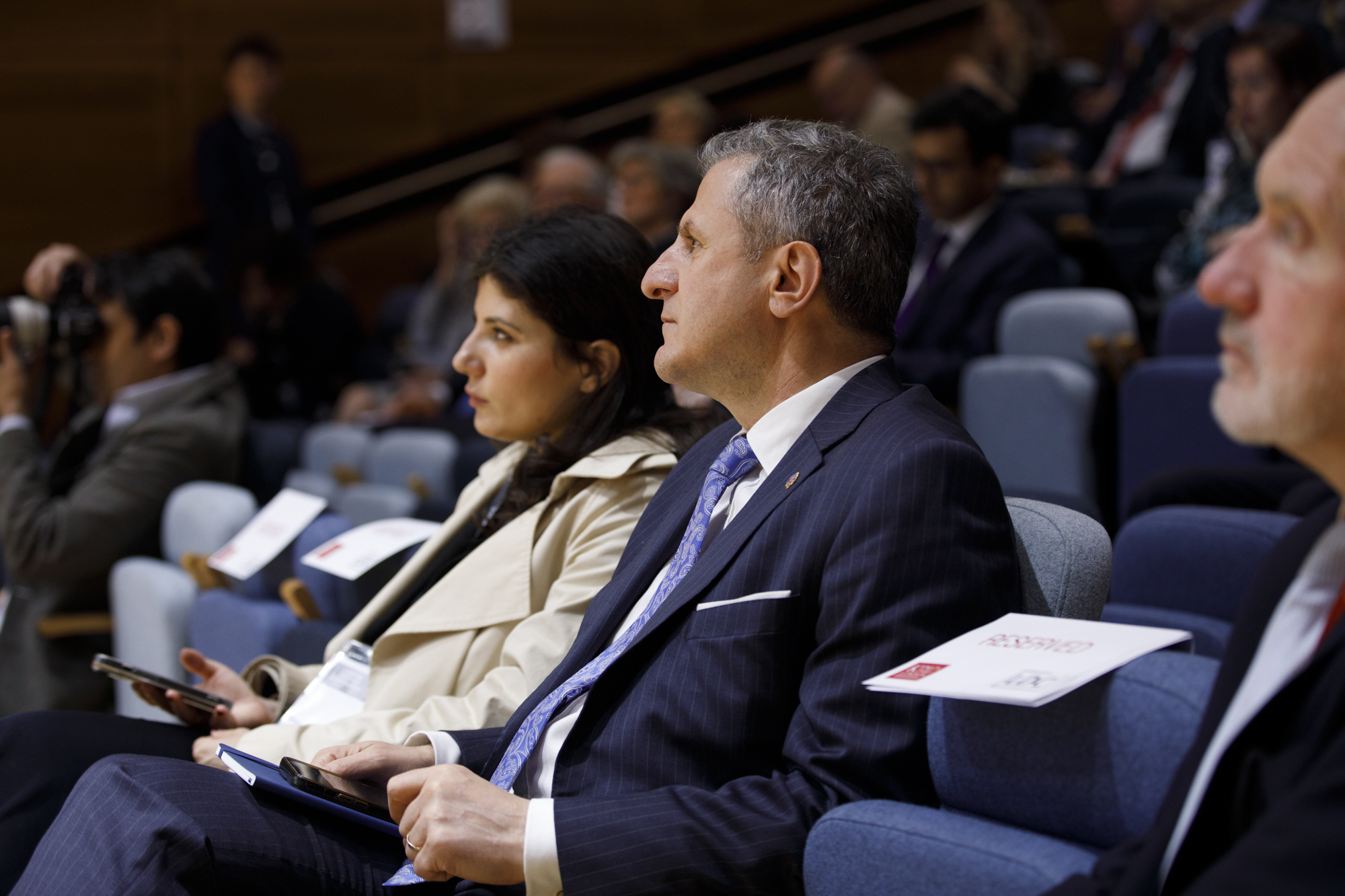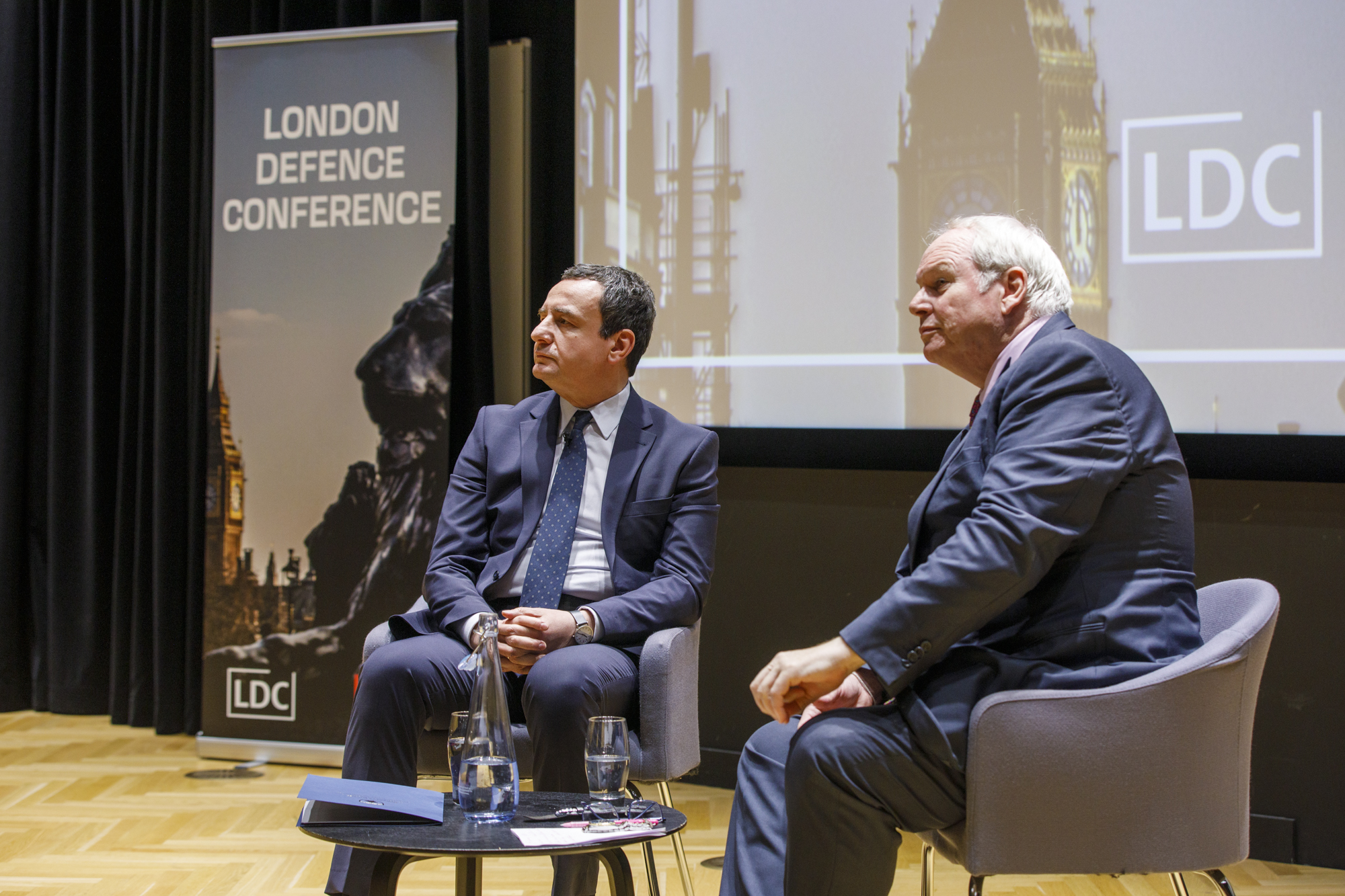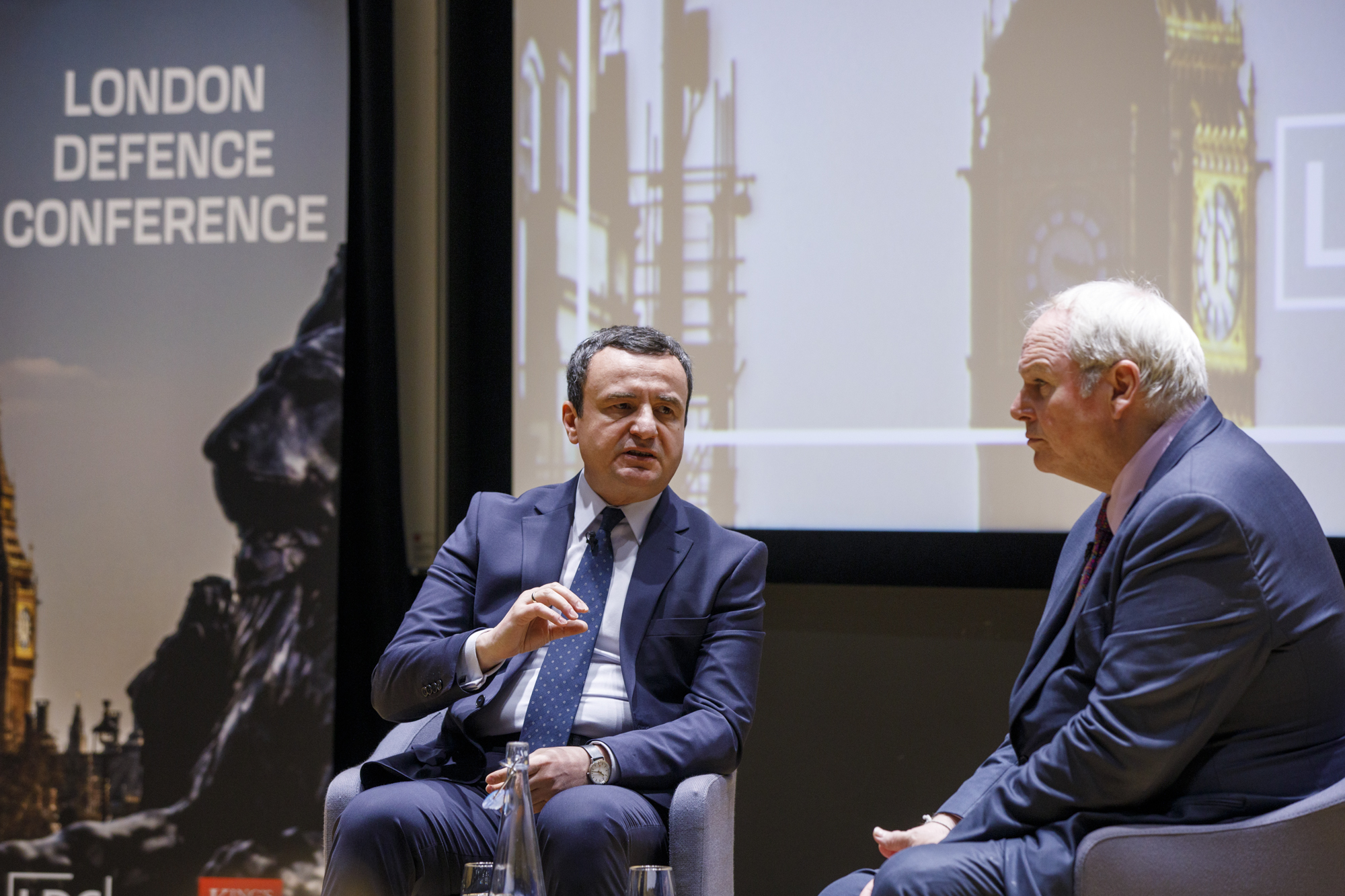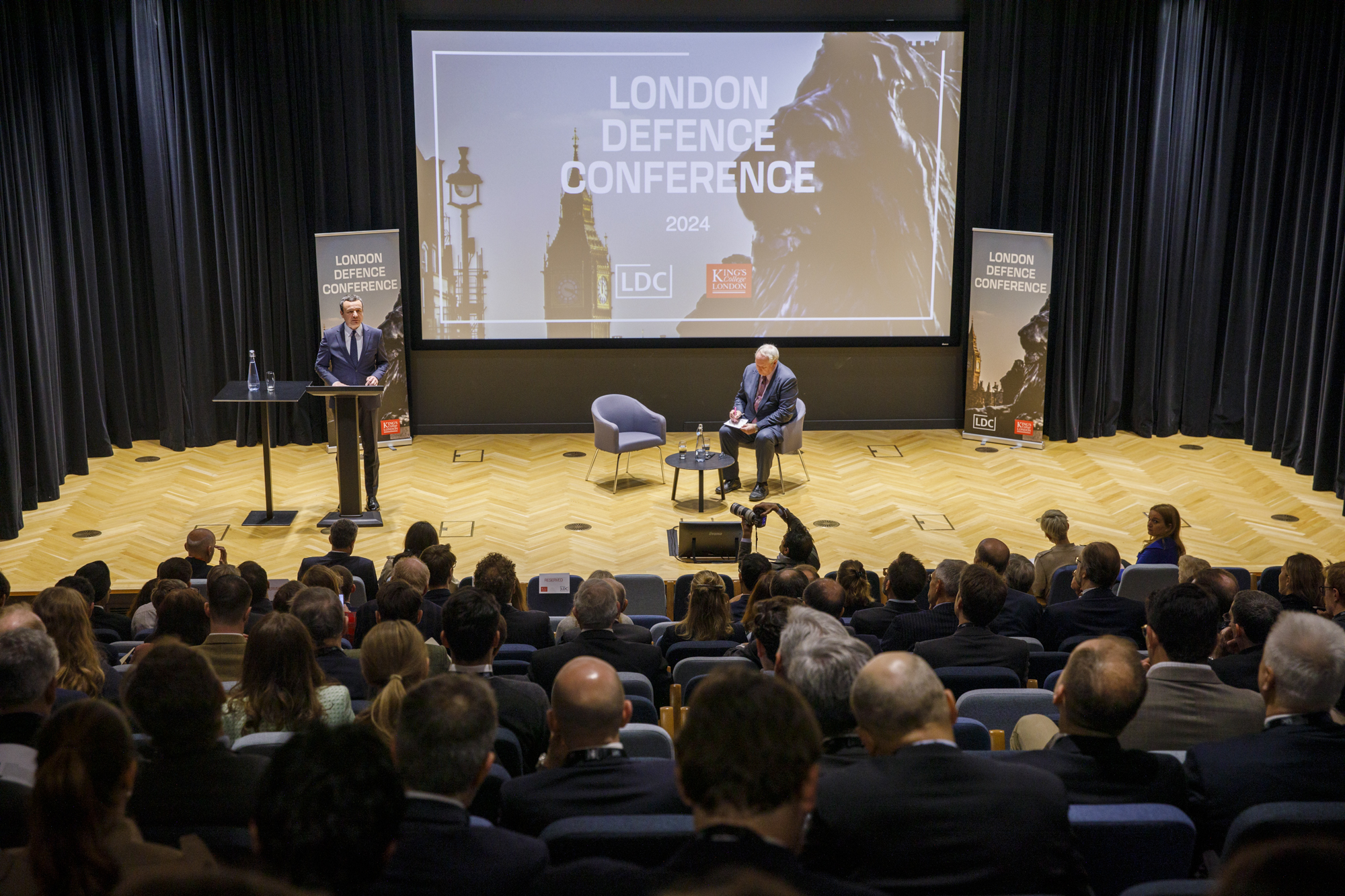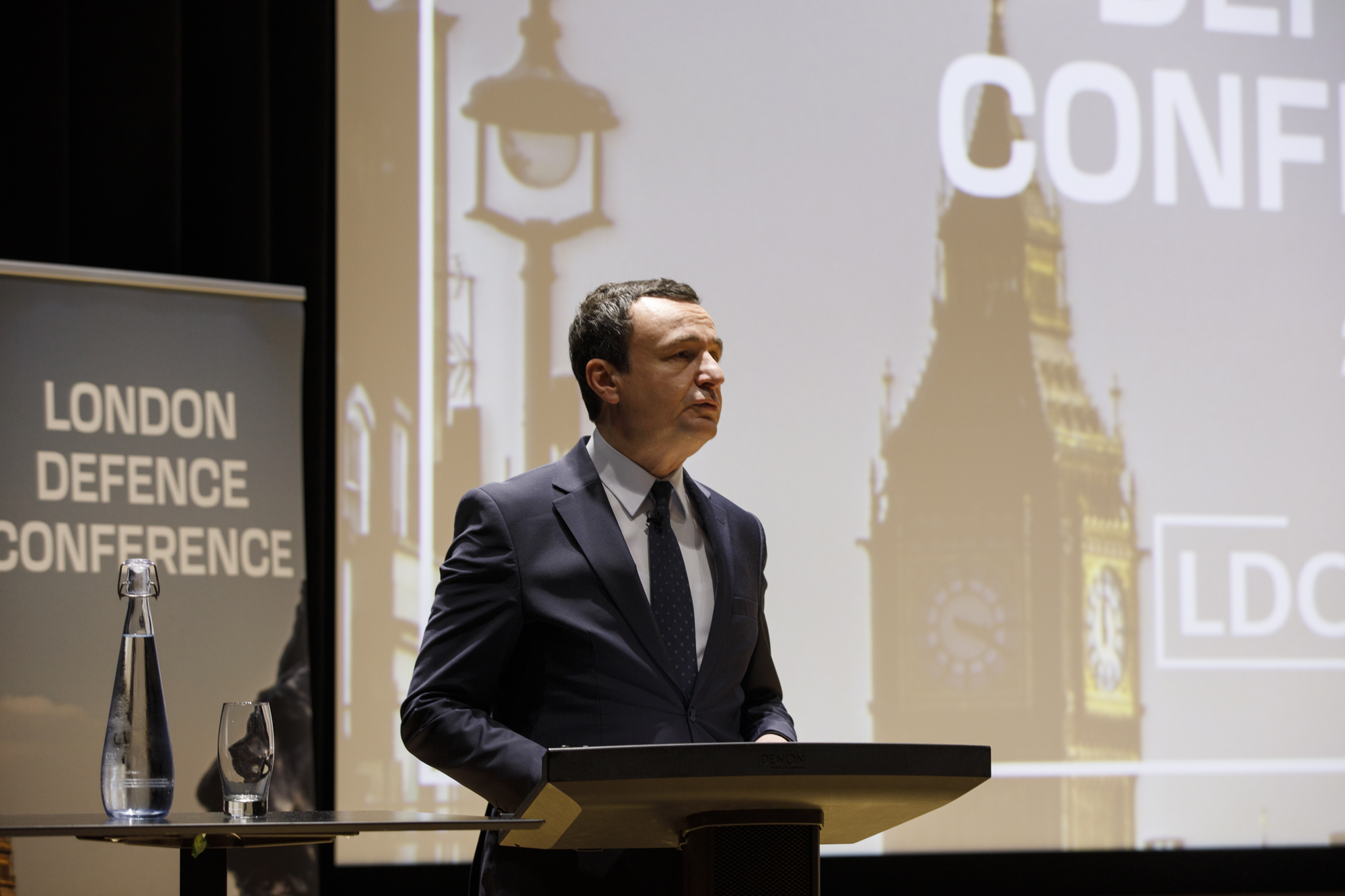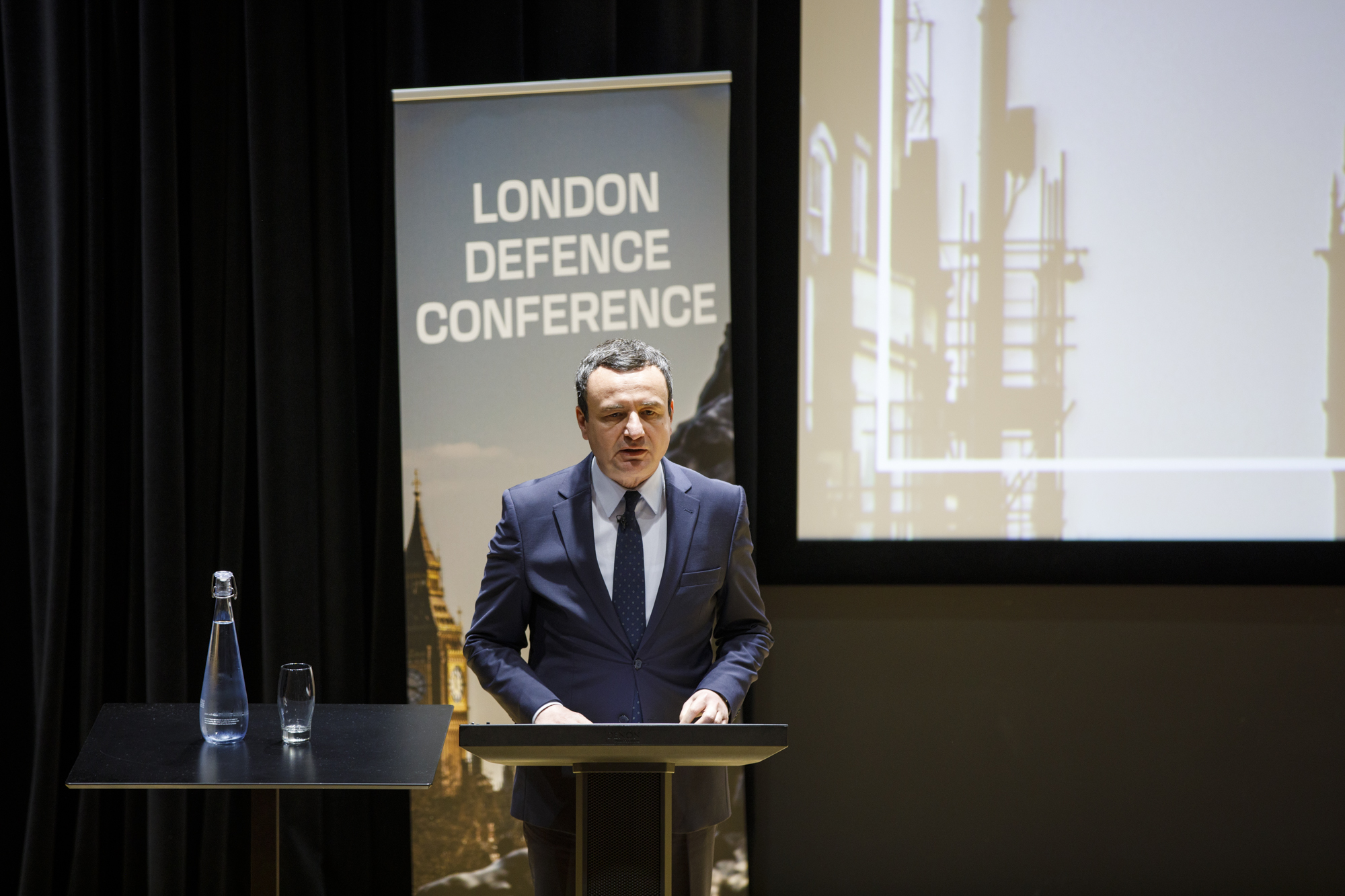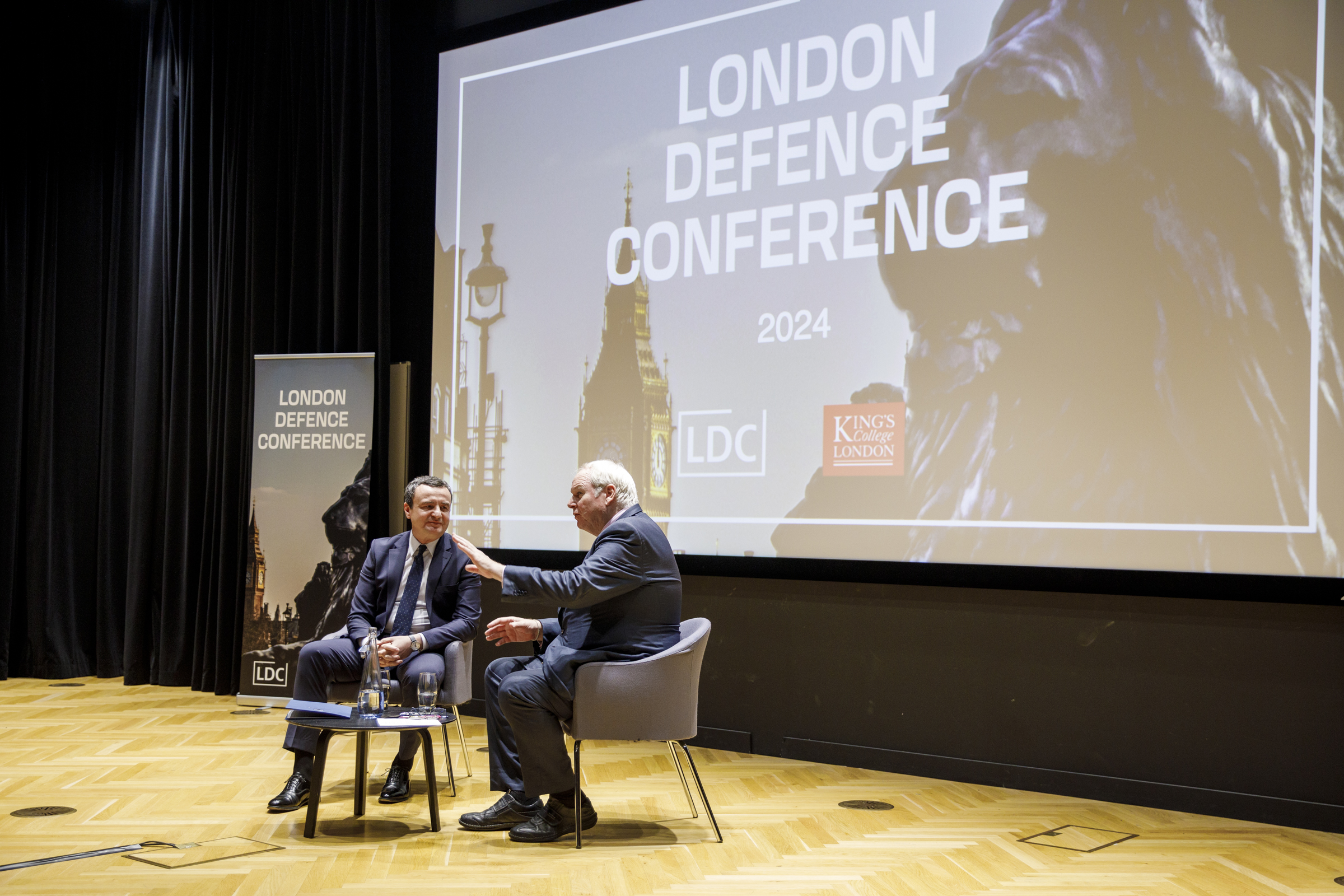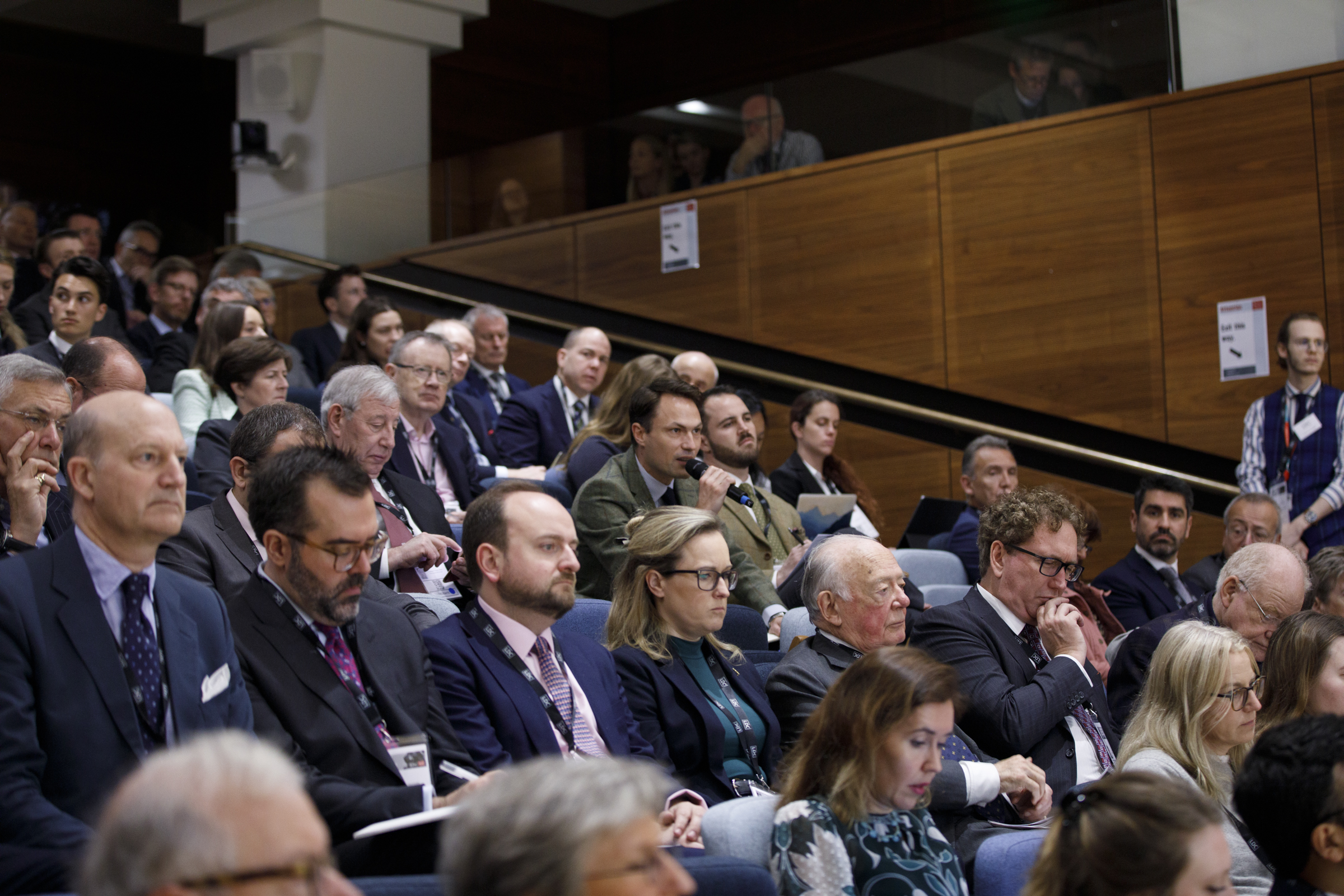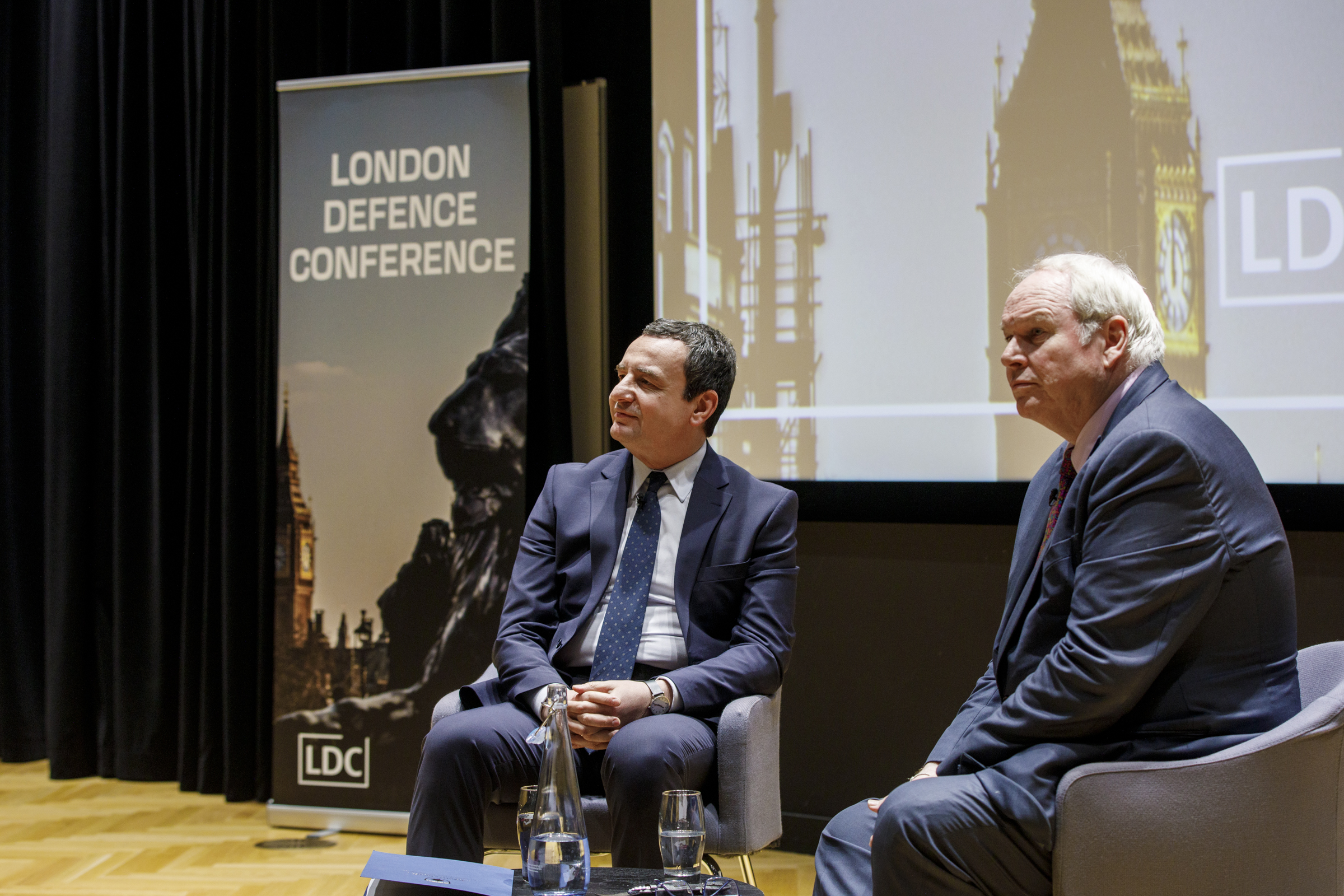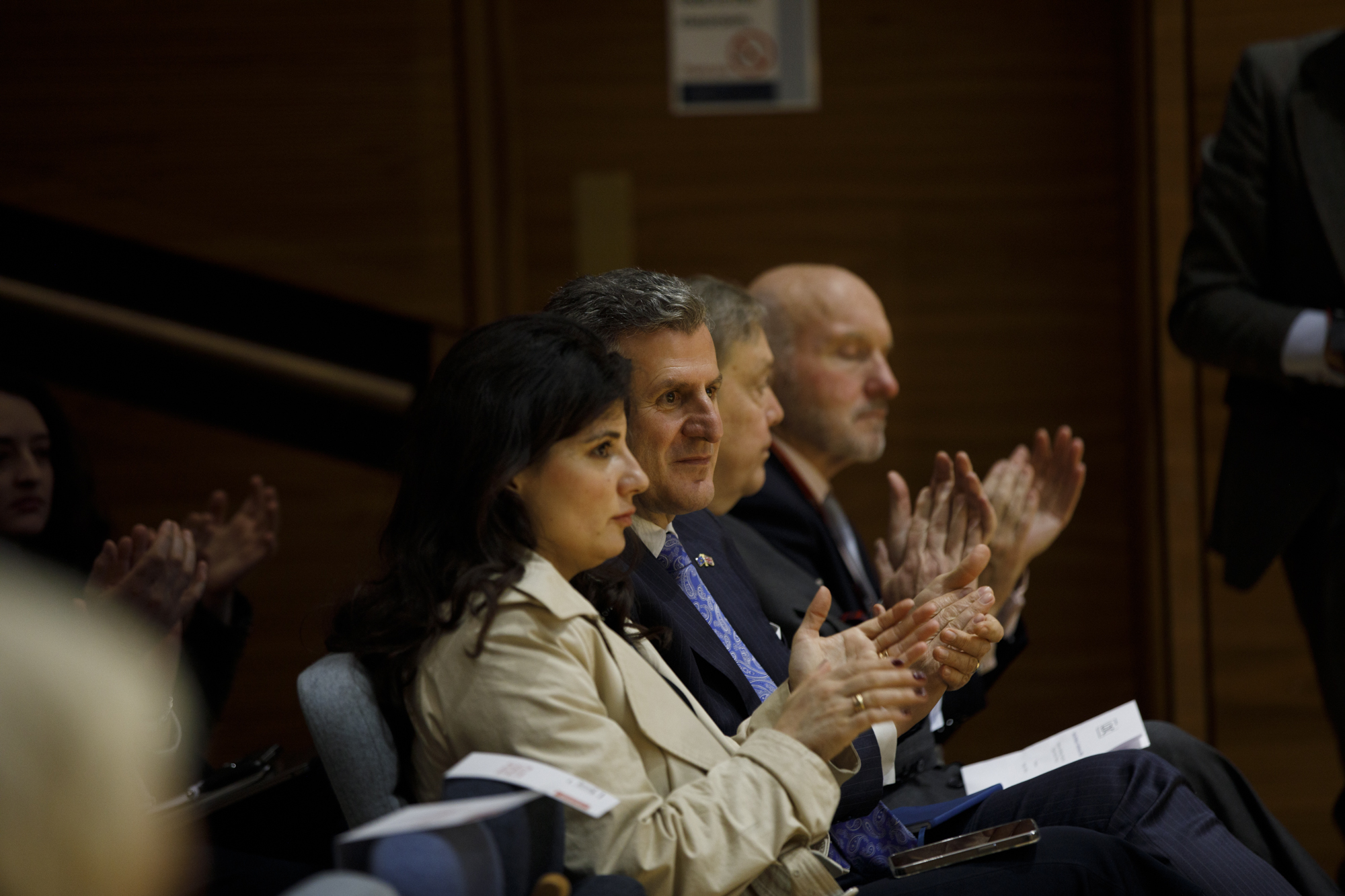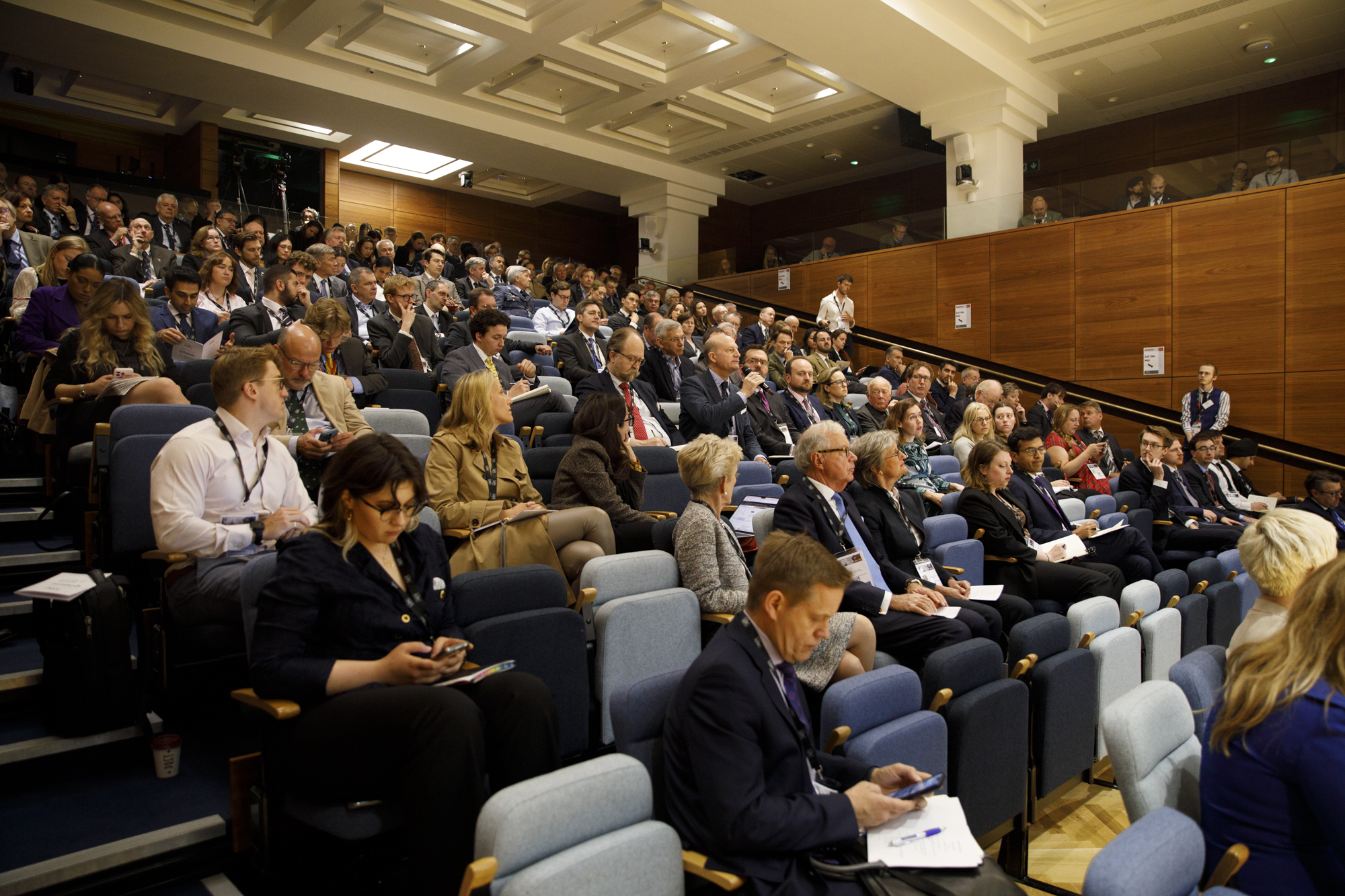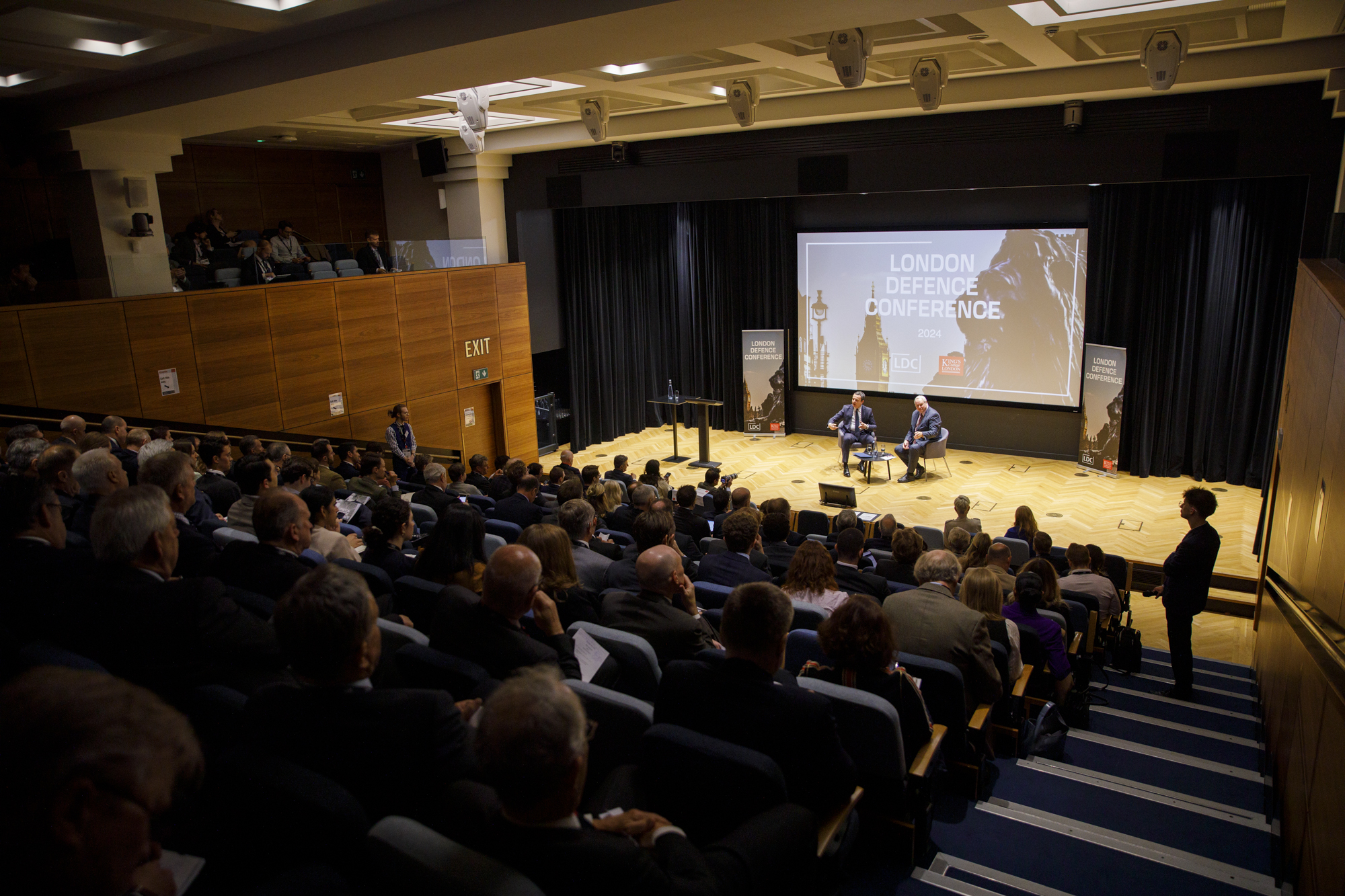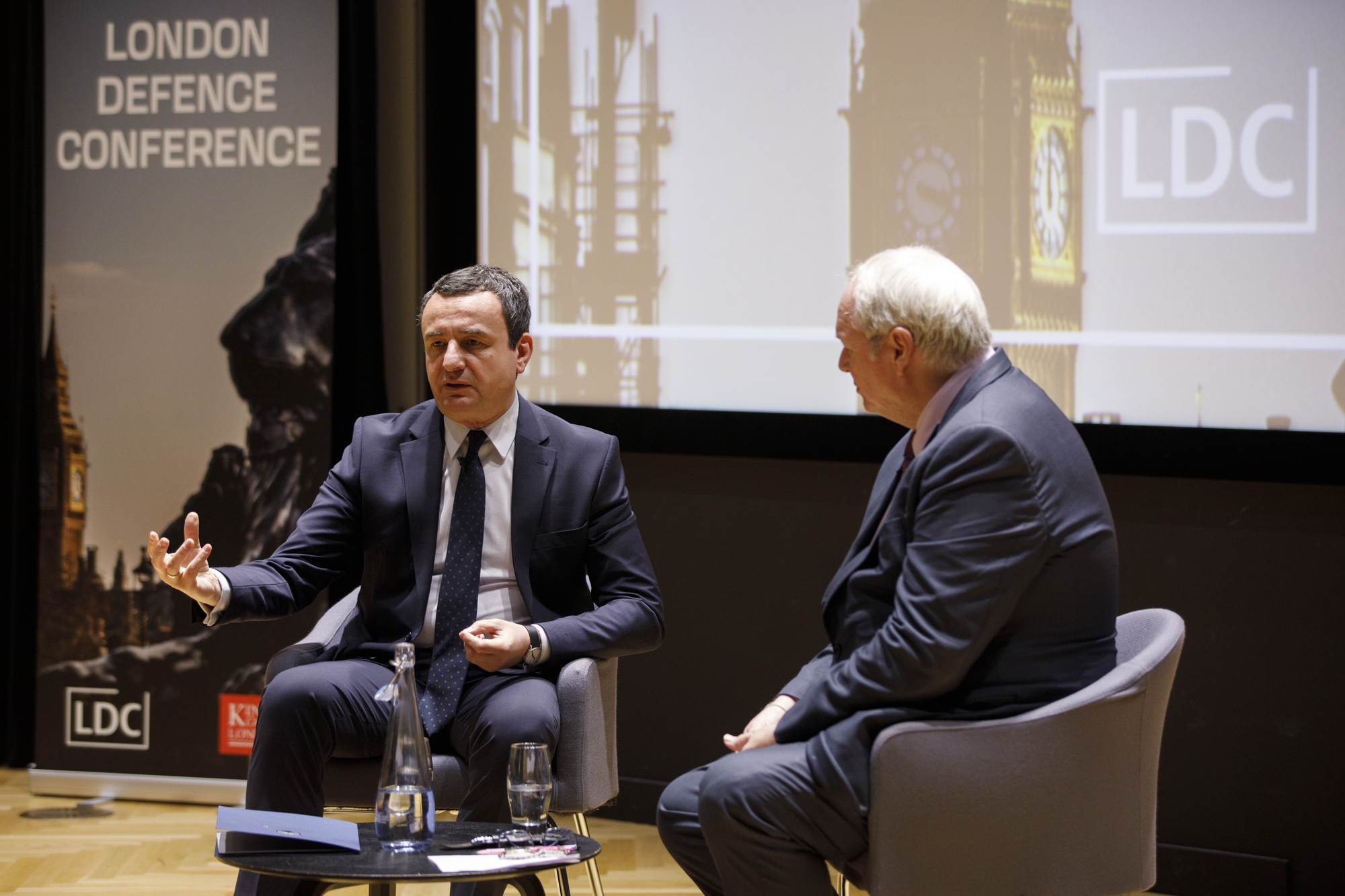The Prime Minister of the Republic of Kosovo, Albin Kurti was the key speaker at the Defense Conference in London that this year is taking place with the theme “Prevention: building capacities to counter global threats”.
In his opening speech, in the main auditorium of the King’s College, where this edition of the Defense Conference is taking place, Prime Minister Kurti spoke about the critical role of NATO and democratic allies, 25 years ago on the occasion of the liberation of Kosovo, and for the danger that the autocrats present today for the security of the country, the Western Balkans and Europe as a whole.
He said that the success of the NATO intervention in Kosovo has challenged the pessimistic views of what the Western intervention could achieve. It, in addition to stopping the genocide that was being carried out on the Albanian people by the Milosevic regime, opened the way for the return of over 1 million refugees, the reconstruction of 120 thousand burned or destroyed houses and the beginning of a democracy.
“What resulted was an independent republic, a commitment to good governance and the social well-being of citizens – governance that respects human rights and values institutional stability, with a constitution and laws that, as the Council of Europe emphasized at the beginning of this year, meet and exceed European standards for the protection of human and minority rights, and the democratically elected bodies that implement those laws”, said Prime Minister Kurti, adding that 25 years after NATO’s intervention, Kosovo has strengthened with the help of international allies and is now the number one democracy in the region, along with economic and social progress.
And while the Western Balkans and the region in general has developed rapidly and changed significantly, threats have continued to be present, and this is not least due to the fact that high officials of the Milosevic regime who were in power for a quarter a century ago are still in power in Serbia today, including the current President of Serbia, but also due to the fact that Serbia is creating more and more close ties with Russia and China, the prime minister underlined.
He singled out the kidnapping of three members of the Kosovo Police near the border by Serbian special forces in June of last year and the terrorist and paramilitary attack on September 24, 2023 in Banjska, as two cases of direct threats from official Belgrade, which, as the prime minister said, he thinks that there is a political and security gap that enables such behavior. He added that Kosovo is not the only country in the region at risk of any physical attack, as he also drew attention to the danger posed by the Russian disinformation infrastructure that uses NATO’s intervention to misinform the West.
At the end of the speech, the Prime Minister said that it is necessary to renew the cohesion and democratic alliance of 25 years ago, so that the states that protect democratic values, close the political and practical gap that makes autocratic leaders believe that the attack on another country European, or whatever the attack is, is possible.
After the opening speech, the discussion with those present in the hall continued under the moderation of journalist Adam Boulton from TalkTV, former editor at Sky News.
Prime Minister Kurti’s complete speech:
Ladies and Gentlemen,
In less than a month, we will mark the 25th anniversary of Kosova-s liberation— after 78 days of coordinated NATO bombing that stopped genocide. This was an unprecedented moment of cohesion in foreign policy and democratic humanitarianism — a meeting of values and power.
The intervention in Kosova, and more broadly in the former Yugoslavia, was a success. It was cohesive, both interest and value-driven. It paved the way for the return of over one million refugees, rebuilding of 120 thousand burned or destroyed houses, and a start of a democracy. It brought together minds who knew that the end of diplomatic avenues does not mean exhaustion of means to stop the genocide.
What followed in Kosova was an independent republic, a fight for good governance and social well-being of citizens — governance that respects human rights and values institutional sustainability, with a constitution and laws that, as the Council of Europe noted earlier this year, fulfill and exceed the European standard for human and minority rights protection, and democratically elected bodies that enforce those laws. Kosova challenged and defied the pessimistic views on what Western intervention could accomplish.
In 25 years, the country has strengthened itself, with the help from our international allies. It is now the number one democracy in the region. In the past three years of our government’s mandate, Foreign Direct Investment and exports have doubled. We’ve had over 6% average annual economic growth. Tax revenues have increased by two-thirds without changing fiscal policy. There are over 150 administrative services that we have digitalized, and we’ve joined the UK, Switzerland, and Scandinavian countries in Europe to have over 96% high-speed internet coverage in the entire country.
The Balkans as a whole have also changed significantly. The region is developing rapidly. But the threats have persisted. This is in no small part due to the fact that senior members of the Milosevic regime that were in power 25 years ago are in power today in Serbia — including then Propaganda Minister and now President Vučić. And Serbia is presently forging ever closer bonds with especially Russia and China.
At a time when we are experiencing war in Europe, we cannot ignore the threat of another war in a region that knows all too well what this means.
Last year, three of Kosovo’s police were abducted near the border. With this action, Serbia tested the boundaries of how far it could go into a NATO-protected zone. The response or rather the lack of it, that they have received, encouraged them to act again, and in September, we experienced a terrorist attack. This was not a casual infringement upon our territory. Troops trained in official military bases in Serbia, carrying armaments worth millions, entered the country. Close to 100 heavily armed individuals were stationed in and around the Banjska Orthodox Monastery, with a plan for a longer and larger conflict to take over the northern part of our country. It is not only Serbia’s alignment with Russia that suggests that the aim of that group was to replicate what Russia did in Donbas in 2014.
The authoritarianism in Belgrade feels there is enough political and security vacuum to behave this way. The vacuum is not imagined. Nine months after the attack, those who orchestrated it live with impunity.
Kosova is not the only country in the region that is vulnerable to a physical attack. The threat, though most escalated in the form of military troops, is constantly manifesting itself through a wide range of grey zone tactics. It is seen in the vast disinformation infrastructure that Russia has helped build which uses the NATO intervention to vilify the West. It is in the drugs smuggled across the border used as means to fund the war machinery, and the use of Orthodox churches as politicized vehicles to store arms, a statement made public by UK Chair of the Foreign Affairs Committee, Alicia Kearns.
This is also a direct threat to our democracy. Democracy needs safety and security in order to thrive. According to a study conducted by the International Republican Institute, 87% of Kosovars support a pro-EU and pro-Western policy. This is the highest percentage of any Western Balkan country that believes it is heading in the right direction. Additionally, 78% rate their household economy from “somewhat good” to “very good.” This growth has been made possible by the safety that we work diligently on.
In these three years of our mandate, the Kosova Police have dismantled 111 different criminal groups, seize over 2.4 tons of various narcotic substances, destroy 17 narcotic laboratories, and eradicate around 50,000 narcotic plants. 35 illegal border routes have been closed. Of these, 27 were closed unilaterally with Serbia, 6 in cooperation with Montenegro, and 2 with North Macedonia.
While our Republic collaborates in every sphere with its partners, such as the United States, the United Kingdom, and the European Union, Serbia intensifies its cooperation with Russia, China, and Iran. Its alignment with Russia, its destructive approach towards our Republic, and its rapid and enormous armament are indicators that it aims for escalation with the intention of realizing its territorial ambitions. Three out of four of Serbia’s combined army brigades, including 48 forward operating bases around the border of Kosova, not including other specialized units, are stationed in the southern territory, near the border with the Republic of Kosova. The threat is not merely a theoretical one. The risk of new war is real.
The cohesion and outspokenness we saw 25 years ago must be renewed today. There is no doubt about who is to blame. The Banjska attack happened because of state capture in Belgrade and the aggressive and expansionist ambitions of those at the top. We, the countries that uphold democratic values, need to close the political and practical vacuum that makes authoritarian figures believe that an attack on another European country is viable, or that an attack is viable, period.
I sometimes joke that today, the only time I see Western powers with this level of cohesion is when it comes to press briefings—and short ones at that. But the levity belies the urgency of a joint and a strong front — resounding answer to a detrimental threat.
Thank you.

